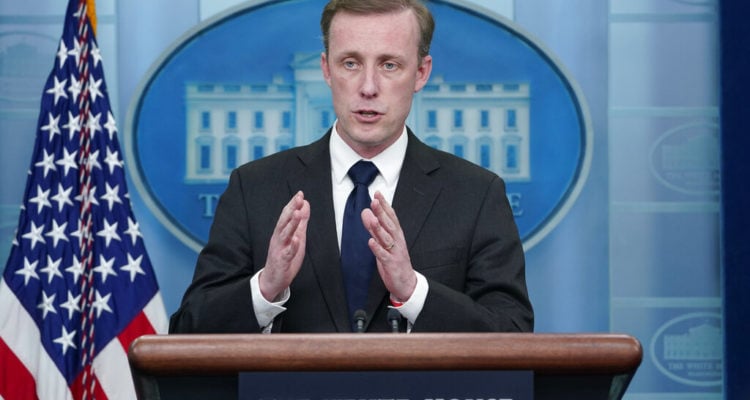Sonnenfeld – who helped shape the original Abraham Accords under the Trump administration – described the official as a habitual over-sharer who acted out of arrogance rather than malice.
The US National Security Council may have inadvertently provoked Hamas’s October 7 attack on Israel through a diplomatic leak.
In an interview on Iran International’s Eye for Iran podcast, academic Jeff Sonnenfeld revealed that a senior deputy to National Security Advisor Jake Sullivan allegedly disclosed sensitive details about imminent Saudi-Israeli peace negotiations just days before the massacre.
The leak reportedly occurred at a crucial moment when Saudi Arabia was poised to join the Abraham Accords, potentially transforming Middle Eastern geopolitics.
According to Sonnenfeld, the unnamed official “stuck a finger in the eye of Hamas” through his indiscreet revelations on October 5 or 6, prompting the terrorist group to act before the historic agreement could be finalized.
While Sullivan’s office has firmly denied these allegations, Sonnenfeld – who helped shape the original Abraham Accords under the Trump administration – described the official as a habitual over-sharer who acted out of arrogance rather than malice.
“There is one deputy in there that, you name the crisis from the Middle East to Central Europe, this guy can’t stop talking. He’s beyond naive. It is his negligence and malpractice in office, but he’s rather full of himself and quite a dandy on top of that,” Sonnenfeld said.
“It would have been amazing, but by tempting fate like that, Hamas realized this was their last moment to strike.”
During the interview, Sonnenfeld also praised President Joe Biden, who inherited the Abraham Accords from his predecessors, for not reversing it, and noted that the president privately acknowledged how close they had been to securing Saudi Arabia’s signature on the peace agreement.
Sonnenfeld characterized the leak as “an ill-timed irritant” that contributed to derailing one of the most significant diplomatic initiatives in recent Middle Eastern history, though he stopped short of directly attributing Hamas’s actions to the disclosure.





